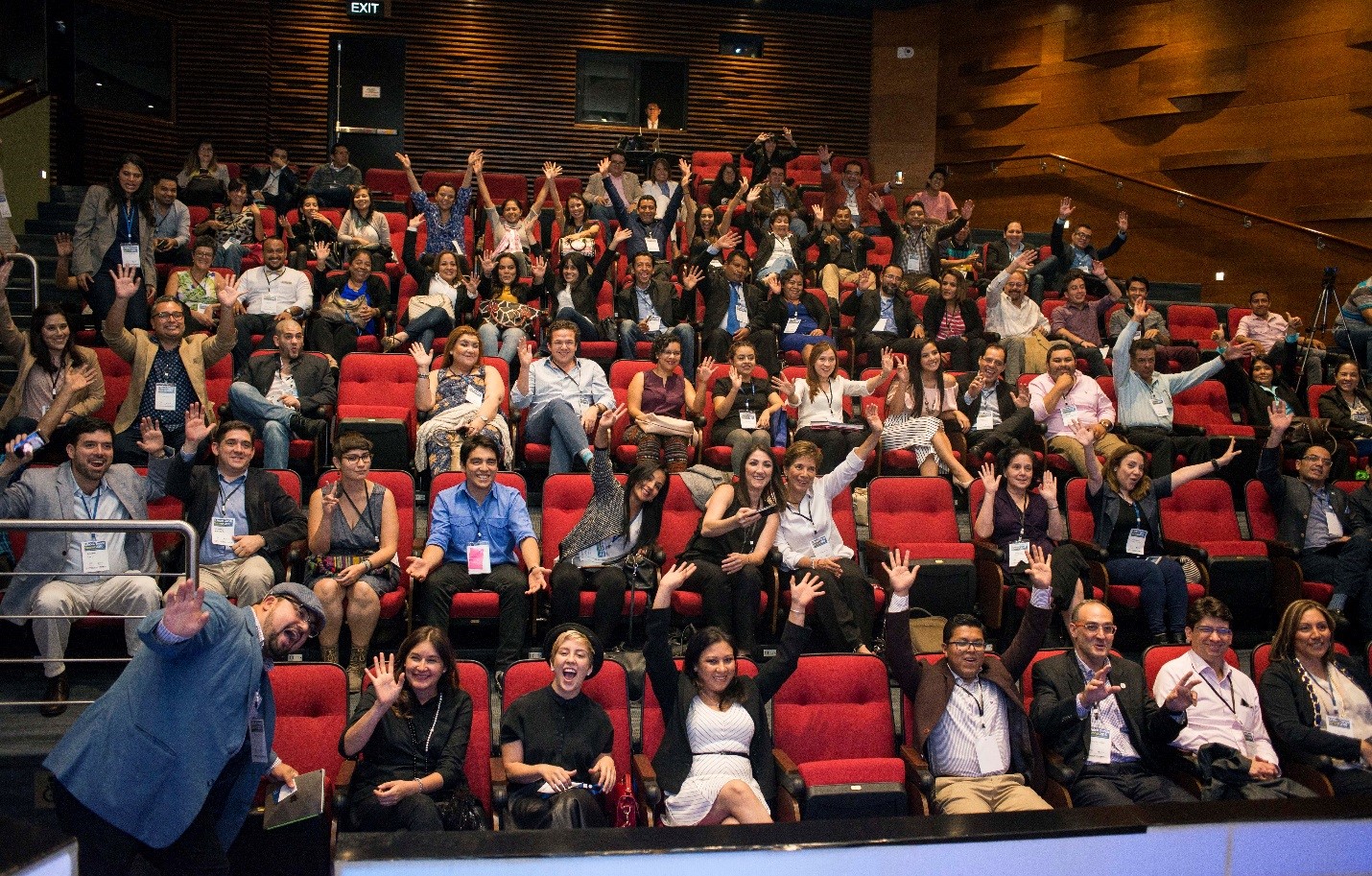Ilifebelt 2016 Trends: Social Networks Study in Central America & Caribbean

Recently, IRI took part in the iTrends2016 Summit in Guatemala City bringing together social media thought leaders from civil society, government, media, academe and the private sector sharing lessons learned, strategies and tools on use of medium.
The Institutes long term partner, iLifebelt, a social media, marketing and research company, presented its sixth study on social networks in Central America and the Caribbean, iLifebelt 2016. What is so exciting about this publication, you ask? It is one of the few, up to date studies on use of social networks across the Isthmus and Caribbean where one can easily find a treasure trove of statistics. This includes user habits—Facebook, WhatsApp and Google+, the top three most utilized; social media versus email use; social network penetration on mobile devices and its relevance and potential for marketing. According to Lorena Bin, iLifebelt’s Strategic Director, the marketing experience has become an increasing trend with businesses becoming Expros (Experience Providers). Businesses not only sell products, but experience as dependence on mobile devices and a fear of missing out (FOMO) has engulfed society. The study features the 15 most influential women and artists on social media across the region and two timely case studies—the Panama Papers and the impact of social media for disseminating information and the anti-corruption campaign against former Guatemalan President, Otto Perez Molina, #RenunciaYa, a hashtag that prompted a social media revolution and an upsurge in citizen empowerment during the summer of 2015.
A quick glance reveals some interesting takeaways:
- Female participation on social media increased from previous year to 51 percent compared to 49 percent for men
- Central America has 22 million social media users, a majority millennials
- Nicaragua has seen the most increase in use of Facebook during the past 12 months, though Guatemala has the most users
- An increase in the number of persons using social media as a principal source of information. This is true for entrepreneurs
- University degree holders make most use of social media
The relevance of innovation and use of data for implementation and action oriented results is fundamental. This coincides with the Institutes focus on monitoring, evaluation and learning. Follow the data to support decision making and ensure sustainable and replicable results. For instance, the Institutes #JuntosPrevenimos (Together we Prevent) social media campaign on violence and crime prevention accentuated how technology and innovative use of social media can help identify community champions, raise awareness and positively impact changes in behaviors, attitudes and norms thereby enhancing citizen security.
During the iTrends2016 Summit, Guatemala’s Minister of the Economy, Ruben Morales; Rodolfo Salazar, CEO, Ideaworks International; Guatemalan singer-songwriter sensation, Stephanie Zelaya; and chef, culinary writer, and host of Desafio Culinario & Puro Chef on Fox Life, Mirciny Moliviatis, shared personal stories on the transformative nature of social media and how it not only enhanced their careers, but connection with citizens, customers, and fans. As Ideaworks CEO Salazar stated, “brands must understand that it is better to attract and connect than pursue…search for fans instead of customers….customers give you money, but fans give their hearts. iLifebelt Trends 2016 captures this notion by highlighting the endless possibilities of data use for problem solving, outreach and enhanced citizen participation.” Social media networks and use of reliable data renders the old adage, knowledge is power, as true.
Download a copy of iLifebelt Trends 2016 here.
Top